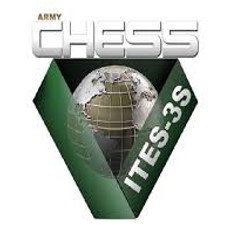My post on November 21st, “What is the Role of a Business Analyst,” resulted in many readers requesting that I go deeper into the distinction between a Business Analyst and a Business Systems Analyst. In the post I provided a simplified distinction between a Business Analyst and a Business Systems Analyst because the premise of the post was defining the role of an analyst (Business Analyst or Business Systems Analyst) as getting the “requirements” right.
The focus of this post is on making key distinctions between a Business Analysts (BAs) and a Business Systems Analyst (BSAs). I gave this a lot of thought over the last few weeks – particularly in determining the best way to present and discuss the distinctions. It not a trivial task because there are significant gray ar eas of overlap between BAs and BSAs and this typically varies significantly across organizations.
The approach that I settled upon is to make the distinctions based on five dimensions of analysis. Clearly, there are more dimensions of analysis. However, for the purpose of this post, the five dimensions below provide deeper insight into the distinction between a Business Analyst and a Business Systems Analyst.
Dimension #1: Requirements
The focus of a Business Analyst is on business requirements – particularly from a business process perspective – including work activities, workflows, work activity procedures, mechanisms (including supporting information systems), roles, organization reporting relationships, etc.
The focus of a Business Systems Analyst is on business systems requirements – the requirements that specify how a business system supports/enables work activities in a business process and the user roles performing the work activities in a business process or in a decision making role.
Dimension #2: Scope
The scope of a Business Analyst is on solutions to business problems – often from a cross enterprise perspective. And, not every problem is resolved with a technical solution. Many business problems are oriented around business process, organizational structure, business policy, etc.
The focus of a business systems analyst is narrower. If the solution to a business problem involves, for example, application software (developing application software or configuring a vendor solution) the focus of the Business Systems Analyst is working with subject matter experts to clearly define the business rules that the solution needs to support at a much finer level of granularity than a Business Analyst.
Dimension #3: Stakeholder Engagement
Both Business Analysts and Business Systems Analysts must be able to deeply (vs. superficially) engage stakeholders at a high level of sophistication using facilitated workshops, meetings, interviews, etc.
The distinction between a Business Analyst and a Business Systems Analyst regarding stakeholder engagement is that Business Analysts are typically working with a wider range of business stakeholders. That said, a Business Systems Analyst must be able to engage both business stakeholders/users as well as the technical community (solution architects, developers, DBAs, etc.).
Dimension #4: Analysis Tools
Business Analysts use business analysis related models and diagrams such as process maps, organizational structure diagrams, strategy maps, role reporting relationships, etc.
Business Systems Analysts use systems analysis related models and diagrams such as activity diagrams, use cases, user stories, entity-relationship diagrams, state transition diagrams, etc.
Dimension #5: Business Domain Knowledge
Traditionally, Business Analysts have broader knowledge of the business domains / industries (Financial Services, Healthcare, Telecommunications, etc.) and business functions (HR, Customer Billing, Procurement, etc.) that they are working in than Business Systems Analysts.
However, this is changing. Business domains and business functions are increasingly complex and rapidly evolving. It’s my observation that Business Systems Analysts are equally knowledgeable of the current trends, nuances, etc. of business domains and functions as Business Analysts and bring substantial domain and functional knowledge to the business systems analysis process in engaging with domain and functional subject matter experts.
Today’s rapidly changing business environment favors high-performing, agile organizations capable of delivering extraordinary customer and business value.
Meeting this challenge often requires transformative change - and sustainable on-going improvement in business processes, organizational culture and supporting technologies.
Subscribe to my blog | Visit our Knowledge Hub
Visit my YouTube channel | Connect with me on LinkedIn
Check out our Business Analysis Training Courses and Consulting Services




















